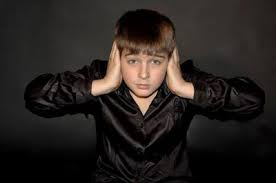

This voice is often capable of high levels of complex and detailed speech which are typically on par with the intelligence and vocabulary of ones own conversational abilities.Īs a whole, the effect itself can be broken down into 5 distinct levels of progressive intensity, each of which are described below: Main article: Autonomous voice communicationĪutonomous voice communication (also known as auditory verbal hallucinations (AVHs)) is defined as the experience of being able to hear and converse with a disembodied and audible voice of unknown origin which seemingly resides within one's own head. This effect can be broken into specific sub-types which are described and documented below: However, they can also occur less commonly under the influence of stimulant psychosis, cannabinoids, and during sleep deprivation. They are most commonly induced under the influence of moderate dosages of hallucinogenic compounds, such as psychedelics, deliriants, and dissociatives. However, at other times, auditory hallucinations may also present themselves as consisting of completely novel and alien sounds that are unlike anything which could currently occur within the external environment.Īuditory hallucinations are often accompanied by other coinciding effects such as auditory distortions and auditory acuity enhancement. For example, a person may repeatedly hear a knock at the door when they are expecting a visitor or may hear music which they were listening to earlier on in the day. In terms of their behaviour, these sounds will often be based on noises which were expected to occur or have been genuinely heard on a frequent basis within the external environment. The most common examples of this include hearing clips of sound such as imagined music, voices, tones, popping, and scraping, but can also be an infinite variety of other potential noises that are stored within one's memory. This is a life-threatening condition that can also cause auditory hallucinations.An auditory hallucination is the experience of hearing spontaneous imaginary noises. Myxoedema is a rare condition in which the thyroid gland does not produce enough hormones and levels drop dangerously. If you fall asleep in random times and places (narcolepsy) or have difficulty falling asleep (insomnia), this is much more likely to happen. However, this is usually nothing to worry about. It is quite common to hear noises just as you fall asleep or wake up. If you start having auditory hallucinations after starting a new therapy or increasing the dosage of a medication you are already taking, this may lead to auditory hallucinations, especially in the elderly. Some people with severe migraines experience auditory hallucinations, usually in the form of voices. It is also especially common to hear the voice of a loved one after his or her recent death. Severe stress, particularly following a traumatic injury, can cause auditory hallucinations.

Some infections, such as encephalitis and meningitis, can cause you to have auditory hallucinations, along with other symptoms. In some cases, it distorts the way you can perceive sounds. When seizures affect the area of the brain that processes hearing, you may hear buzzing or voices. Some drugs, such as ecstasy and LSD, can make you see and hear things that are not there. Heavy drinking can make you see things that are not there, as well as hear nonexistent noise, which can become a constant after drinking for many years. People with hearing loss in one or both ears can hear anything from sounds, music and voices that aren’t real. Nevertheless, this condition can increase the risk of experiencing auditory hallucination, especially in the presence of depressive symptoms.

Doctors do not consider the usual buzzing or hissing of tinnitus to be a hallucination.

However, there are many other reasons, including: Psychological problems are among the most common causes of auditory hallucinations.


 0 kommentar(er)
0 kommentar(er)
